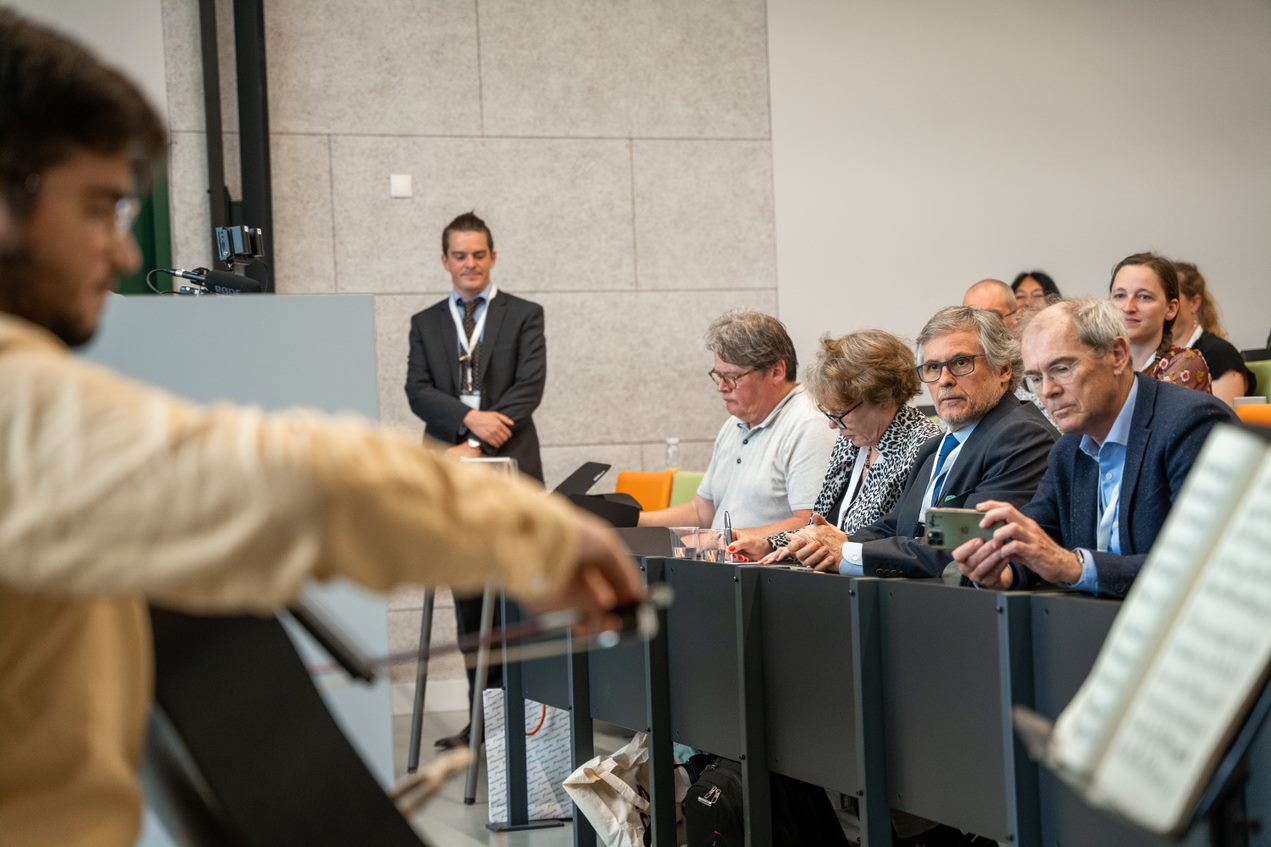From 15 to 17 May, the U!REKA Connects conference took place at HOGENT. Over 100 participants from 7 partner institutions gathered in real life for the first time in two years to network, to get to know each other's research and education projects and to discuss new cooperation projects. The participants unanimously praised the HOGENT organisation and the programme.
U!REKA, in full Urban Research and Education Knowledge Alliance, started up in November 2016 with (then) six European higher education institutions. Besides HOGENT, these were Amsterdam University of Applied Sciences (Netherlands), Frankfurt University of Applied Sciences (Germany), Edinburgh Napier University (United Kingdom), Oslo Metropolitan University (Norway) and Metropolia University of Applied Sciences Helsinki (Finland). They were later joined by Instituto Politécnico de Lisboa (Portugal) and VSB-Technical University of Ostrava (Czech Republic). The Oslo Metropolitan University withdrew from the partnership, which means that the alliance now has seven partners.
Through intensive cooperation, the alliance aims to improve the excellence of education, research and professional development of the staff of the partner institutions. In addition, the partners want to benchmark their institutional policies, management and services.
European University
During the plenary opening session on 16 May, the steering committee signed a new cooperation agreement for the next five years. This agreement clarifies, among other things, what the cooperation activities in the field of staffing entail.
The steering committee also decided to prepare a proposal for the European University Initiative Call in 2023. Recognition as a European University involves European funding and could significantly boost U!REKA's effectiveness. Such a European University is a logical extension of what U!REKA does.
It is, in essence, about creating a European inter-university 'campus' that builds a long-term strategy for education, with links to research, innovation and society at large, and that sets up European teams for knowledge creation with students, staff, companies, as well as regional and societal actors.
Although U!REKA has been gradually moving in this direction since its foundation, the previous two proposals for European University Initiative Call were not funded. By taking into account the selection committee's concerns, among other things, the new application can be more strongly motivated.

.jpg)
